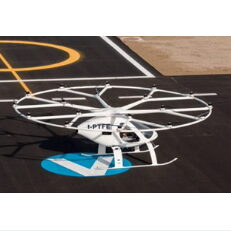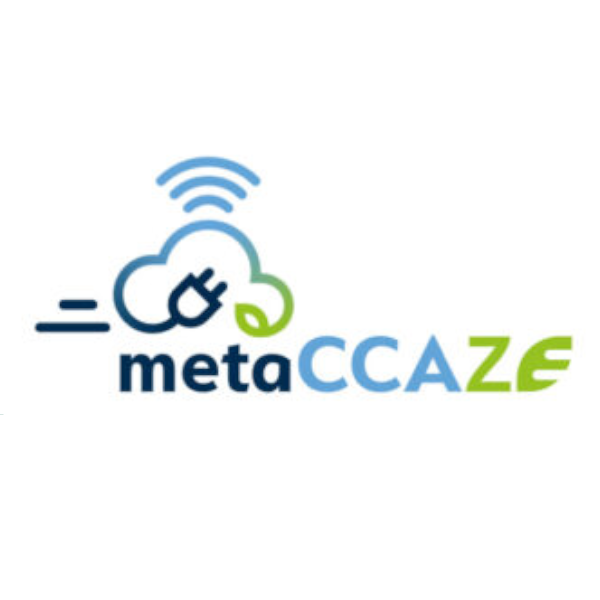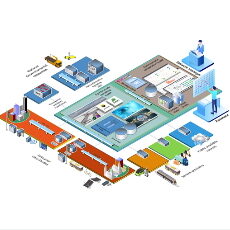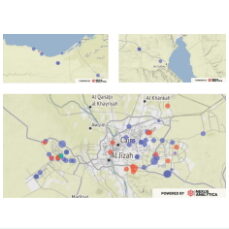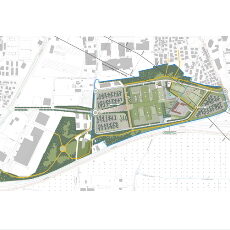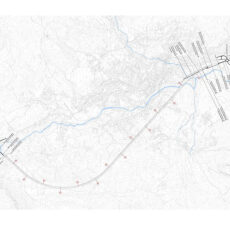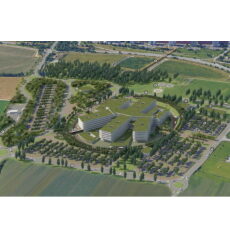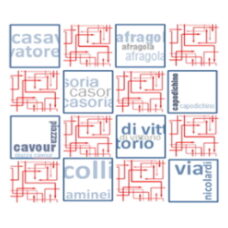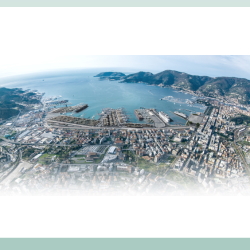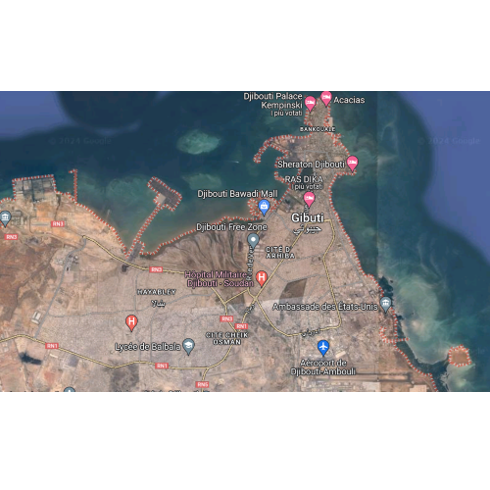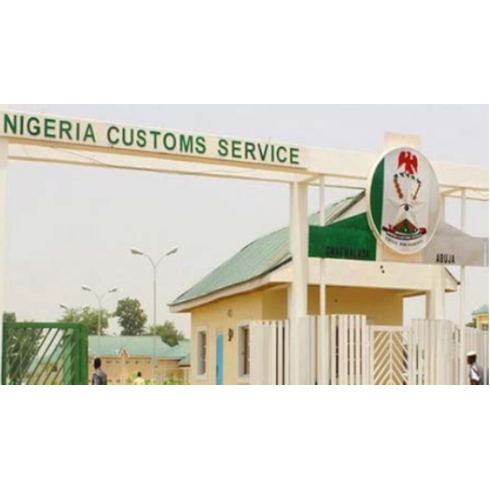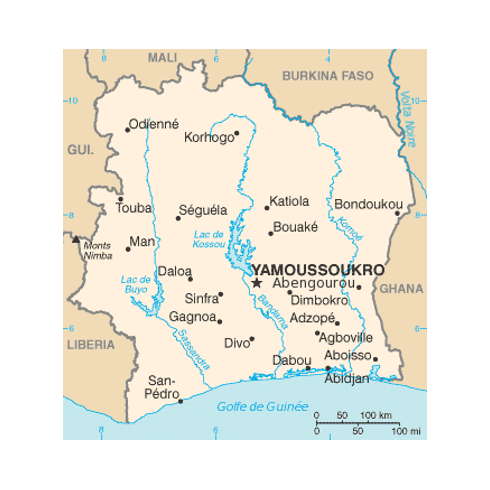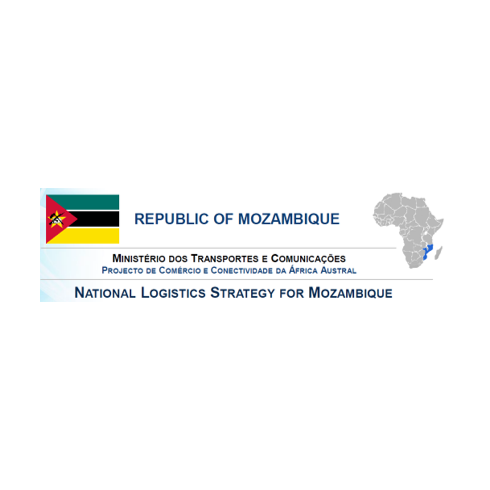Consultancy services and research activities
TRT Trasporti e Territorio is an independent consultancy based in Milano (Italy) and Brussels (Belgium), specialized in economics, planning and transport modelling.
Established in 1992, the Company has earned a solid reputation in supporting public and private actors thanks to its professional and R&D activities in the fields of transport projects and policy assessment. TRT is, indeed, experienced in several and referenced professional services in the following main areas: strategic planning, urban mobility, research projects, feasibility studies, project assessment, transport demand analysis and forecast, logistics and freight transport, planning and regulating of public transport, energy and environment.
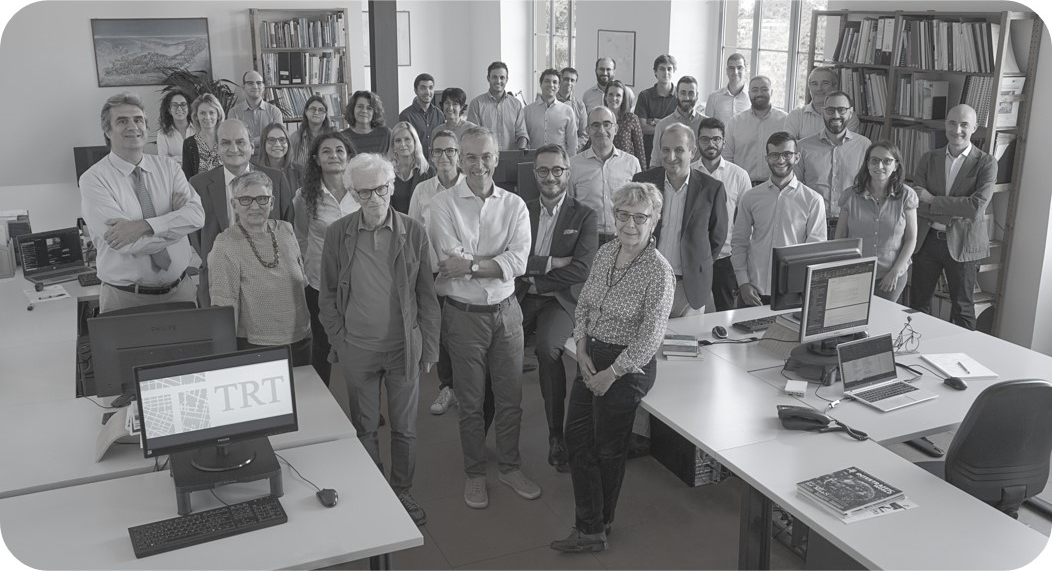
OUR SERVICES
Studies
We analyse problems and strategic issues on behalf of public institutions and private clients
Research
We actively work in the field of new policies and technologies and in the development of quantitative tools
Planning
We develop mobility plans, passenger and freight transport networks and systems
Assessment
We develop methodologies and estimate social, economic, and financial impacts
WE CONTINUE TO EXPAND AND IMPROVE OUR SKILLS
Electric mobility and ITS
Technological innovation and transport system decarbonisation are studied at a local and international scale
- Pre-feasibility study for the establishment of a Vertiport in the Municipality of Piacenza The pre-feasibility study for the establishment of a vertiport in Piacenza is pioneering in the context of Urban Air Mobility themes and has been structured around three main lines of activity: market analysis, demand analysis (potential), and location hypotheses. The market analysis and its prospects involved an in-depth examination of electric vertical takeoff and landing (eVTOL) aircraft, their temporal outlook, and the technological barriers associated with such technologies. An overview of the global and national market was provided, and insights were developed regarding the ground infrastructure enabling these new services – Vertiports – as well as potential services, taking into account industry regulations. Furthermore, a detailed analysis was conducted on both global and Italian cases of experimental vertiport implementations, examining the regulatory framework in the sector. The analysis of potential demand was conducted using big data, derived from mobile network cells, and focused on exchange flows with possible attractor centres within a radius of approximately 150 km from Piacenza. These attractor centres included the city of Milan and the airports of Milan (Maplensa and Linate), Bergamo, Bologna and Turin. The potential locations for the vertiport within the territory of the Municipality of Piacenza were examined, taking into account the necessary infrastructure elements and European guidelines provided by EASA (European Union Aviation Safety Agency). The selection criteria favoured pre-existing, accessible areas. Finally, the estimate of the minimum required square footage and associated costs have been prepared.
- Flexibly adapted MetaInnovations, use cases, collaborative business and governance models to accelerate deployment of smart and shared Zero Emission mobility for passengers and freight MetaCCAZE is a “Research and Innovation Action” Horizon Europe project to support the implementation of the Climate-neutral and Smart Cities Mission. Its overreaching mission is to accelerate the user-centred deployment of smart systems and services that combine electric automated and connected mobility and related infrastructure across European cities. The project organizes a series of MetaDesign activities with multisector-stakeholders and population groups to develop co-designed and shared zero-emission mobility use cases, collaborative business and governance models. A toolkit called MetaInnovations will be developed consisting of six main smart technologies (1. grid supply-fleet-demand; 2. AI-Datawarehouse; 3. inductive automated charging; 4. remote control centre for Avs and ADAS for parking and docking; 5. AI-driven re-scheduling tools for e-services; 7. Digital twin optimisation). These technologies will be implemented to improve passenger and freight services (PT, on-demand minibuses, bike sharing and deliveries) and related infrastructures (mobility and logistics hubs, traffic management centres, charging infrastructure) in 4 trailblazer cities (Amsterdam, Munich, Limassol, Tampere). Successful cases will be transferred, implemented and demonstrated in 6 follower cities (Athens, Krakow, Gonzo, Milan, Miskolc, Paris region). TRT is leader of WP1 that sets the ground by reviewing the current situation in the cities and defining the several activities that will help structuring the implementation of the trailblazer and follower cities as well as their cross-fertilization. TRT will also design the standard impact evaluation framework that will be used by the cities to assess the efficiency and to ensure that their impacts aligns with the MISSION and SUMP/SULP targets. Finally, TRT will also prepare the “MetaPolicy Package” to contribute to updates of urban and transport policies and feed the strategic research and innovation agendas (SRIA) of CCAM, 2ZERO, CIVITAS and other initiatives.
- Mapping study on digital and technical solutions to enable more effective and user-friendly UVARs, while respecting the principle of subsidiarity The broad objective of the study is to support the operation of more efficient, user-friendly and non-discriminatory UVARs across the European Union for both vehicle users, operators and city authorities. For vehicle users (private and commercial) the specific objective is to improve the ease and efficiency of UVAR pre-registration procedures while, for authorities, to ease the conformity checks of vehicles. This study will seek to achieve the abovementioned objectives by identifying and mapping EU interoperable technical and digital solutions (or combinations thereof), as well as respective realistic and feasible implementation options, that facilitate seamless travel across the EU. This further “mapping study” builds on UVAR Exchange results and is structured in 4 Tasks. Task 1 starts with the identification, mapping, analysis and further clarification of interoperable digital and technical solutions or their combinations thereof, including an analysis of what it takes to implement them on the ground. Task 2 will provide an overview of the identified technology combinations with its specific pros and cons, constraints and challenges, including the notions of user-friendliness and non-discriminatory aspects. It will investigate and suggest EU-wide interoperability standards needed for UVAR compliance and enforcement technologies and digital solutions Task 3 will build from the previous and draft a roadmap of actions. Task 4 is a transversal task that will concentrate all stakeholder engagement and consultation activities TRT leads Task 3 activities and is responsible for investigating digital tachograph and camera-based solutions including data exchange and enforcement practices and IT systems in use in Italy. Besides TRT, the awarded consortium is composed of Panteia (NL), MAPtm (NL) and Austriatech (AT). The study follows the previous European Parliament Preparatory Action, contracted by DG MOVE, for an “User-friendly information tool on urban and regional vehicle access regulation schemes” that generated the projects UVAR Box and UVAR Exchange (https://uvarbox.eu/) with TRT as partner of the two consortia.
- Design and assessment of the National E-Mobility Strategy in Jordan Electrification is one of the main options towards decarbonizing the transport sector. The Jordanian transport sector, currently reliant on fossil fuels, accounts for nearly 40% of the energy consumption in the country in 2020. Transport decarbonisation has to be addressed to achieve Jordan’s ambitious Nationally Determined Contribution (NDC) goals. From electricity-sector perspective, uncontrolled electric vehicle (EV) uptake may bring challenges such as increase in peak load and distribution grid congestion, but also present financial and technical opportunities due to new revenue streams. Seeing the potential and benefits of E-Mobility uptake, the Government of Jordan has included Designing a National E-Mobility Strategy as part of its Reform Matrix, under Pillar 9 Energy. To this end, the Ministry of Energy and Mineral Resources (MEMR) has been leading the effort in coordination with key stakeholders and implementing partners. The World Bank (WB), through the Jordan Growth Multi-Donor Trust Fund (MDTF), supports MEMR and GoJ in its mandate with required Technical Assistance (TA) activities. This project will inform the WB’s policy dialogues in Jordan related to scaling up E-Mobility, in the context of the GoJ’s effort to design, launch, and implement a National E-Mobility Strategy. This study will have a particular focus on energy-sector issues (notably charging infrastructure and charging tariff), but also build upon past efforts, consolidate previous findings, systematically assess the key issues at stake, and provide valid and actionable options in order to support GoJ’s formulation of a comprehensive National E-Mobility Strategy. TRT, supported by MRC (Spain), is leading the project and is responsible for the design and assessment of the strategy. As part of its activities TRT has developed the Jordan vehicle fleet model to forecast the uptake of electric mobility.
- Unlocking opportunities for private sector participation in electric mobility transition in Jordan and Egypt Electrification of transport stands out amongst the most promising emerging solutions at the interface of clean energy transition and sustainable transportation. Countries in the MENA (Middle East and North Africa) region are at very different stages of Electric-Mobility development. However, E-Mobility creates opportunities for climate change mitigation and adaptation, increase energy efficiency, enhance quality of transport services, and improve urban air quality, while taking advantage of the integration of higher shares of renewable resources, energy storage and demand response technologies in the evolving electricity grids across the region. The objective of this twofold consulting assignment is to provide support to the World Bank task team to deliver technical assistance to both Jordan and Egypt, with the aim to facilitate: private sector participation (PSP), including different forms and levels of engagement from the private sector to collaborate with the public sector (PPP); and private capital mobilization (PCM), which enables and leverages private sector investment to maximize the total financing resources available for development purposes, to support a more ambitious goal towards E-Mobility development. The studies for the two countries focus on two main pillars (e-buses fleets and EV public charging infrastructure), and provide operations-ready and investment-ready output, with suggestions on feasible business models and potential contractual arrangement for PSP and PCM in the e-mobility transition and investment rollout. The two projects are carried out by the same lean international consortium made by MRC Consultants and Transaction Advisers (ES), leading, and TRT (IT). In the consortium, TRT is specifically responsible for the EV charging infrastructure sub-sector (in both countries) and is leading the study related to Jordan.
Cost Benefit Analysis
Project assessment covers transport infrastructure and beyond
- New hospital in piacenza: transport study and cost-benefit analysis for the design of the feasibility study for the new location in area 5 TRT Trasporti e Territorio was commissioned by the Local Health Unit (AUSL) of Piacenza to provide technical support to the design group led by Policreo Srl, with the in-depth studies on the Transport Study and the Cost-Benefit Analysis developed within the Feasibility Study, (drawn up in accordance with art. 14 of Presidential Decree No. 207/2010), of the New Hospital of Piacenza related to area 5 (AL 9), located in the urban sector within the urban ring road, between Corso Europa and Strada Farnesiana. The study is divided into three main activities: the first is about the mobility and parking system related to the current hospital location, analysing in detail the system of roads, parking and public-private accessibility of the area. the second is about the functionality of the road infrastructures serving the new hospital in Piacenza, assessing the impact of the private mobility system, in terms of road infrastructures and the parking system; the third explores cost-benefit analysis issues, comparing the new project of the hospital with the option of maintaining and upgrading the existing hospital. The cost-benefit analysis estimates the project’s contribution to improving the social-economic well-being of the community, i.e. it estimates whether the social-economic advantages, or benefits, outweigh the disadvantages, or social costs. Related projects: Transport study and cost-benefit analysis of the new hospital in Piacenza
- Professional support on the cost-benefit analysis of the «S.S.51 – Variante di Cortina» project A new bypass in the city of Cortina d’Ampezzo (Belluno) is foreseen as part of the infrastructural improvements promoted by Anas S.p.A. in the Veneto region, Italy, and particularly in the areas hosting the XXV Winter Olympic Games in 2026. The project consists of a road bypass alternative to the current route formed by state roads no. 51 «di Alemagna» and no. 48 «delle Dolomiti», which currently pass through the city centre. It aims at lightening the traffic flow crossing the city by moving it towards a different journey – mostly in a tunnel -, thus improving traffic smoothness and the liveability and attractiveness of the popular mountain resort, which enjoys a rich and vibrant tourist market in both winter and summer. TRT developed the cost-benefit analysis of the proposed project according to the most recent guidelines of the Italian Ministry of Infrastructure and Transport. Transport and socio-economic benefits – such as time savings of passengers and goods, as well as a reduction in accident costs – were identified and quantified in monetary terms, and confronted with construction and periodic maintenance costs. Based on results obtained from the economic model, properly discounted over time, the usual indicators for socio-economic returns were computed, i.e., the Economic Net Present Value (NPV), the Internal Rate of Return (IRR), and the benefits-costs ratio (B/C). A sensitivity analysis related to the most critical variables was run, along with the computation of the IRR’s switch values (i.e., the values of individual variables that alone turn the NPV to the negative side). Finally, aiming at valuing the safeguarding of a landscape and touristic asset such as the Italian Dolomites, the analysis was accompanied by a qualitative assessment of the project’s non directly monetizable benefits. These include a higher usability and accessibility of the city centre as a consequence of lower congestion, higher transit speed for extra-urban traffic in case of adverse weather conditions, as well as an increase in road safety thanks to a route running mostly in a double-barrel tunnel.
- New Hospital of Piacenza: Contributed to the feasibility study through an in-depth transport system analysis and a Cost-Benefit Analysis TRT Trasporti e Territorio was commissioned by the Local Health Unit of Piacenza to provide technical support for the project of the New Hospital of Piacenza, as part of a consortium led by Policreo Srl. TRT contributed to the feasibility study through an in-depth transport system analysis and a Cost-Benefit Analysis. The activities were divided into three main topics: the first topic concerned the mobility system of the current hospital complex, analysing in detail the road system, the public and private accessibility of the area and the hospital parking area; the second theme assessed the functionality of the road and parking infrastructures serving the new hospital area and estimated the impacts on the private mobility system. The transport analyses concerned the private and public modes as well as cycling and the parking systems. The analysis was conducted through the application of a sophisticated and dynamic traffic micro-simulation tool that provided a series of quantitative parameters (average speed, delays, etc..) functional to assess vehicular flows; The third one was related to the cost-benefit analysis. The analysis was developed comparing the scenario with the new hospital with the scenario where the existing hospital is upgraded/renovated. The cost-benefit analysis estimated the project’s contribution to social welfare, comparing the socio-economic costs of the two scenarios (investment, maintenance, etc.) with the corresponding benefits (health benefits, improved transport accessibility, availability of recreational and green spaces).
- Financial and economic analysis of the new metro line Afragola AV-Napoli and of a moving walkways at Colli Aminei station The project consists of an evaluation of two transport infrastructure projects: the new metro line Afragola-Napoli (LAN) and of a moving walkways at the Colli Aminei metro station (CAM). Respectively, these projects have been planned by the regional administration to connect the Afragola high-speed rail station with Naples inner city, and to improve the accessibility of the (sloping) Colli Aminei metro station. Based on a detailed traffic analysis, TRT carried out a financial and economic evaluation (cost benefit analysis) of the projects, considering on the one hand the project investment and operating costs, and on the other hand the impacts expected from the induced modal shift (lower road traffic levels, travel time savings, reduction of traffic externalities, etc.). The evaluation took into consideration different project layouts of LAN and CAM, contributing to identify the best alternative from a cost-benefit point of view. As provided by the national guidelines on transport project evaluation, a risk analysis was also developed including a qualitative risk analysis, a quantitative risk analysis, a sensitivity analysis.
- Financial and economic evaluation of the shore-side electrification project (cold ironing) in the new cruise terminal in La Spezia By electrifying ships hoteling activities, the La Spezia port authority aims to prevent diesel combustion from berthing vessels and avoid exhaust emissions and noise in the port areas. The objective of this project is thus to assess the welfare implications of the shore-side electrification project (cold ironing) and evaluate the feasibility of such infrastructure investment from a socio-economic point of view. Following a cost-benefit analysis approach and based on first-hand information on port traffic flows and infrastructure costs, the analysis estimates the evolution over time of both health benefits and investment and operation costs, providing a monetary quantification of the net social benefits obtained from the electrification of the cruise terminal. Taking into account relevant developments in the maritime and energy sector, such as the diffusion of natural LNG-fuelled cruise vessels and of renewables in the national energy mix, the evaluation work also provides a comprehensive assessment of the convenience of maritime transport electrification as compared to alternative policy options, and a sound case study about more sustainable approach to coastal policy and infrastructure spending.
Studies and projects in Africa
Over the last years TRT has been developing studies and projects in several countries across Africa
- The Djibouti authorities have appointed the consortium led by IDEA Consult to develop a long-term vision for urban mobility and an action plan for the short, medium and long term, taking into account climate change and its impact on transport networks. The aim of the project is to address the problems of the capital’s transport system, which are undermining its functionality. The study will be carried out in three phases An initial diagnostic phase of the urban transport system, which includes analysing demand, surveying the current state of the road infrastructure and constructing a macro and micro model. A second phase consisting of two main activities: a short-term priority investment programme providing rapid responses to problems, and the development of a shared long-term strategic vision for the urban transport system. Finally, a third phase will be the definition of the master plan for the urban road system. Within the consortium TRT will be responsible for:
- Trade and Transport Facilitation Study on the Abidjan-Lagos Corridor Highway Development Project The core of the study, committed to TRT and IdeaConsult, is the analysis of the current process of border crossing by both passengers and freight within Cote d’Ivoire, Ghana, Togo, Benin and Nigeria. This analysis aims to identify any bottlenecks, whether they are legal, regulatory, or related to physical infrastructure, that complicate the crossing. The study then will propose measures at both national and regional levels that would significantly improve the current crossing systems in terms of both time and cost for passengers and goods crossing one or more borders along the corridor. TRT team will provide its expertise for tasks related to ICT, logistics, and transportation, through the involvement of selected key experts. The work includes organising on-site meetings, collecting data for the reconstruction of the state of the art in the fields of ICT, logistics, and transportation in the corridor and in the countries concerned. TRT team is responsible for drafting reports on ICT, logistics, and transportation themes and for presenting the results and content of the reports.
- Ivory Coast – Elaboration of the National Logistics Plan The aim of the project is the elaboration of the National Logistics Plan of the Ivory Coast with the identification of strategies for the development of logistics in the country, the drafting of an action plan and the training on the simulation model realised. The work is characterised by the performance of the following activities: collection of data and information through field interviews and desk research with reference to freight transport and logistics in Ivory Coast; processing of the data and information collected in order to provide an overview of the current state of logistics in the country, both in terms of supply and demand for freight transport; analysis of the institutional, organisational and regulatory framework of the freight transport sector in the Ivory Coast; study of the country’s freight transport and logistics development programmes for the future years; elaboration of the National Logistics Plan of the Ivory Coast. In support of the plan, TRT is also responsible for the construction of a simulation model of the demand and supply of freight transport in the country, capable of providing a forecast of demand, also in relation to the constant growth of the national GDP and the planned infrastructural interventions both on the transport network and on the main nodes (such as, for example, distribution centres and port terminals).
- The National Logistics Strategy for Mozambique was committed to a consortium coordinated by IdeaConsult and involving TRT and EEPLAN (a company located in Mozambique). The main objectives of the assignment are: The assignment will be carried out in four stages according to the following:



